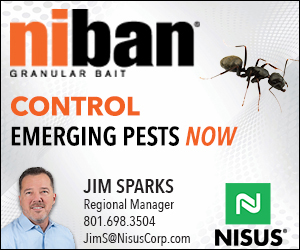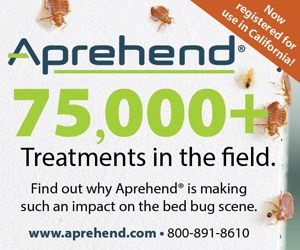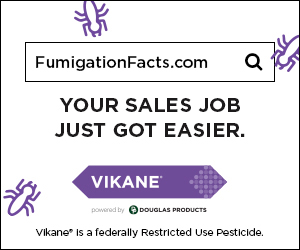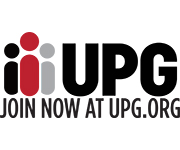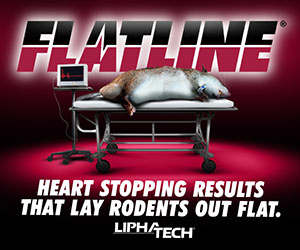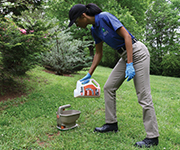 |
||||||||||||||||||||||||
|
September 2021
|
||||||||||||||||||||||||
|
Upcoming Events
December Board of Directors Meeting — IN PERSONOur meeting will be held at the Hilton Palm Springs December 9-10, 2021. We will have our Golf Tournament on Thursday, December 9, 2021. Committee Meetings (8:00 am - 12:00 pm) and our BOD Meeting (1:00 pm - 4:00 pm) will take place on Friday, December 10, 2021 and will conclude with our reception at 5:30 pm. We will have similar vendor opportunities as the September BOD. Registration for that and Golf will be released mid-October. Looking Forward...
PestEd Series Dates & Locations TBD 2022 Expo 2022
Preferred Partners
Wanted to thank all of those who participated in our first PCOC Board of Directors Meeting in Carlsbad in nearly two years!
Chris Reardon
Government Affairs
It has been an eventful couple of months for this state in Sacramento. Our governor has kept his job, for now. The legislative session ended without fanfare and bills were signed. The recall was a distraction to many people in Sacramento. Whether that is good or bad is up to you and your perspective. But, as of September 14th, Newsom is still our governor. The polls had it touch and go for a little bit, but the majority of the voters decided to keep him in office. But that also means that he will need to start running for re-election here in the not-too-distant future. But whether you like the outcome of the election, whether you voted for or against the recall, our ability to even have this opportunity is a testament to democracy and how it is alive and well in the state and country. Your voice through your vote was heard. And that vote is important to cast. The legislative session ended this month. That means that no other bills can move through the legislature. If they haven’t made it out by now, then they won’t this year. There were a few that made it through and were signed that are of interest. The first is AB 332 (Committee on Environmental Safety and Toxic Materials) addressing the disposal of treated wood waste. This one moved through the process without any issues. The governor signed this bill with an immediate implementation. But for us, that just means business as usual. We can go back to disposing of this wood waste in the way that used to. Another bill that we care about (kind of) is AB 1298 (Bloom) updating the rodenticide bill that was passed last year (AB 1788). This one allows for the Department of Fish and Wildlife to be able to use second generation anticoagulants in their managed lands for the control of invasive rodents if needed. This is of interest because it shows that even that department sees the value in these products. There may be a few other bills that we will need to deal with next year…but only time will tell. Darren Van Steenwyk, M.S., BCE
District meetings
The Quick Start PPC Guide for Pest Control CompaniesIn this article, we’ll walk you through the basics of what to know before you attempt PPC advertising for your pest control services. Whether you plan to take the self-taught approach or hire a digital marketing professional, this information is critical for you to know. What is PPC?PPC stands for Pay-Per-Click. As the marketer, you only pay for the ad when someone clicks on it. Hence the name. You likely see PPC ads on a daily basis, even if you aren’t familiar with this type of marketing. Frequently, PPC ads appear right at the top of Google search results, giving them prime placement. PPC ads are a good option for contractors to take advantage of because you can target your specific audience—both by location and the type of pest control service they’re seeking. However, you’ll only pay for your ads if/when someone actually clicks on them. “PPC can pay off if you have the budget. It’s a guaranteed way of getting your ad the best placement …” — Forbes Keyword The keyword for your ad should be a specific word or phrase related to the pest control service you’re promoting. Examples include: “pest extermination”, “rodent removal” or “safe pest control”. You’ll want to identify several of these phrases depending on the types of pest control services you offer, use them as a set, and determine the maximum amount you’re willing to pay per click. Finding the right keywords for a PPC campaign is a bit of an art. For that reason, many pest control businesses seek out marketing services who are familiar and experienced within the pest control industry. The goal is to maximize performance while minimizing cost. Landing PageEvery PPC ad links to something. That “something” is almost always a landing page on the advertiser’s website. While you could use your homepage (or any other existing page) for your PPC ad, we recommend against it. PPC ads perform best when the associated landing page includes copy that closely aligns with the message of the ad. Your best bet is a custom landing page for each separate PPC ad you run. SERPSERP stands for “search engine results page.” It’s the list of results you see when you do a Google Search. Google’s algorithm will analyze searches and determine if your ad is relevant. Relevance is based both on your keyword and on the content of the landing page your ad points to. This is important. Strong keywords and well-crafted ads aren’t enough. You need relevant, compelling landing pages. If Google determines that your ads and the linked landing page are a good match for the pest services search an online user is looking for and you’ve bid enough on the related keywords, your ad will display with organic search results. Ad CampaignYour selected keywords, text ads, URLs, and landing pages are all included here. The better the overall package, the higher the quality score Google will associate with your pest control ad. Why Stress Is a Safety Problem
Short-lived or infrequent episodes of stress pose little risk. But when stressful situations go unresolved, the body is kept in a constant state of activation, which increases the rate of wear and tear to biological systems. Ultimately, fatigue or damage results, and the ability of the body to repair and defend itself can become seriously compromised. As a result, the risk of injury or disease escalates. —NIOSH We all know that continuous exposure to stress damages health. NIOSH, the National Institute of Occupational Safety and Health, reports that it also creates increased risk of injury at work.
Exposure to stress sets off our natural “flight or fight” reaction. The nervous system is aroused and hormones are released to sharpen the senses, quicken the pulse, deepen respiration, and tense the muscles. While this reaction serves an important function in protecting us from immediate danger, long-term exposure to stress can lead to health problems.
What About Stress Itself? Is it Compensable?Although the conditions that stress can cause may be compensable, many states specifically exclude mental stress claims from coverage under workers’ compensation. In many states, such as Connecticut and Indiana, workers’ comp regulations state that emotional stress must result from a physical injury. Other states, such as Oregon, take a middle ground — a job must be extremely stressful to be covered by workers’ comp. In these states, the claimant must clearly prove the job caused the stress. In California, regulations dictate that the job must account for at least 51 percent of the stress in order to be covered. What Can Employers Do to Reduce or Minimize Job-Related Stress?Individuals under stress often display several symptoms. Managers and supervisors can use these as early warning signals of job-related stress:
Factors that can help to reduce the effects of stressful working conditions include the following:
Employee assistance programs (EAPs) can help workers under job-related stress address their problems and find a better work/life balance. A quality EAP can provide counseling and referrals on a broad range of subjects, including personal problems such as substance abuse, financial problems and family conflicts that can also affect job performance. For more information on controlling workplace stress and other factors that can influence safety and productivity, contact the Insurance professionals of the PCOC Insurance Program. Call us at: 877.860.7378. Paul Lindsay What Are the Pros and Cons of PPC Advertising?Is PPC advertising suitable for your pest control services? To answer that question, let’s weigh the pros and cons. ProsPest control companies focus on a local service area. After all, people look within their city or township for a professional exterminator. That being the case, there are some strong advantages to PPC for building your clientele… Cost-effectivenessIf done well, PPC is very cost-effective. You only pay when a visitor comes to your page. Plus, you get to decide exactly how much you're willing to spend. That makes it easy to determine (and stick to) a marketing budget. CustomizationYou can adjust your pest control campaign and keywords along the way, constantly optimizing them for better performance. If a campaign isn’t working the way you expect it to, you can course-correct on the spot. TargetingYou can target your audience of homeowners and commercial businesses based on things like language, geographical location, and even device type. That makes it really easy to go after the job type or price point you want to go after—whether they are located in a large metropolitan area or in a specific neighborhood. SpeedPPC ad campaigns yield almost immediate results, making them much faster than organic campaigns. ConsAs strong as the advantages are, PPC ads aren’t for every pest control company. There are a couple of cons you should be mindful of. Technical skillsPPC is more technical than other forms of advertising. While this guide is enough to get you headed in the right direction, it’s hardly everything you’ll need to know to run successful PPC campaigns. If you want to get the most out of PPC ads for your services, you’ll need to do one of two things:
“If you want your PPC campaigns to remain effective, you have no choice but to evolve. In some cases, that evolution will mean thinking about things very differently than before.” – Search Engine Journal Cost accumulationIf you don't manage and optimize your campaigns constantly, their costs can increase while the conversion rate drops. You could end up paying a lot for not much in return. In other words, PPC is not a “set it and forget it” strategy. You (or your PPC partner) will need to monitor results and adjustment as needed. How to Set Up PPC for Your Pest Control BusinessWhether you choose to work with a pro or tackle PPC campaigns on your own, it’s helpful to have an overview of the setup process. This is a high-level summary of what it takes to actually set up PPC ads. 1. Research the CompetitionBefore you design your campaign, you’ll want to do some quick competitive research. If you know what your competitors are doing, that will give you an idea of what currently works. For example, you’ll learn about keywords you may want to target, Google searches that include PPC ads for other pest control services, and what kind of landing pages those PPC ads are pointing to. Pay special attention to their ad text and their landing pages. 2. Find the Right KeywordsKeywords are the heart and soul of a PPC campaign. Use tools like Google Keyword Planner to find out average click-through rates (CTRs), cost-per-click (CPC), and search volume for various keywords. Google Keyword Planner will even show you a difficulty score for each keyword. That will tell you how hard it is to get your ad to show up in organic search results. 3. Focus on a Specific Location and ServiceTo attract local projects, you’ll need to include your location and specific services in your ads. Why? Because a shocking number of people use basic, location-based searches when looking for service providers on Google. Terms like “pest control companies near me” or “bed bug treatment in Los Angeles, CA.” The better you know your ideal audience, the more specific you can get with location and services. 4. Build Your Ad AccountYou’ll need to define your ad campaigns by adding keyword groups. Each campaign will have a total budget, and each ad group will have a list of keywords. You’ll need ad copy for each ad group. This copy is what will get property owners to click through, so it’s important. Keep the following in mind:
5. Start Your CampaignOnce you have everything in place, all that’s left to do is actually launch your PPC campaign. Next StepsPPC is complex. That’s as true for pest control businesses as it is for any other home services industry. A PPC expert can help you create and run your campaign. They’ll research keywords relevant in the pest control world, set up your ad accounts, track your ads, and optimize your content for high conversions. When you work with a specialist who has handled PPC for pest control companies, you will be drawing from a wealth of knowledge on how to market your expertise successfully. Contact us today for more information about how Market Hardware helps pest control companies launch high-converting PPC ads that pull in more jobs! Market Hardware is happy to offer Web Marketing consultations — give us a call to learn more! Contact us today if you’re interested and want more information! You can email PCOC@markethardware.com or call (888) 381-6925. Frequently Asked For Websites
|
||||||||||||||||||||||||

